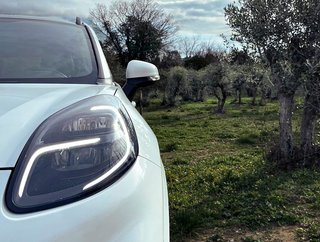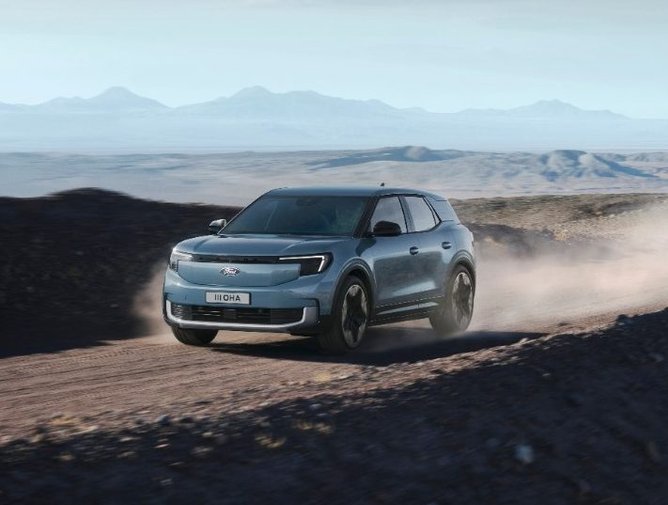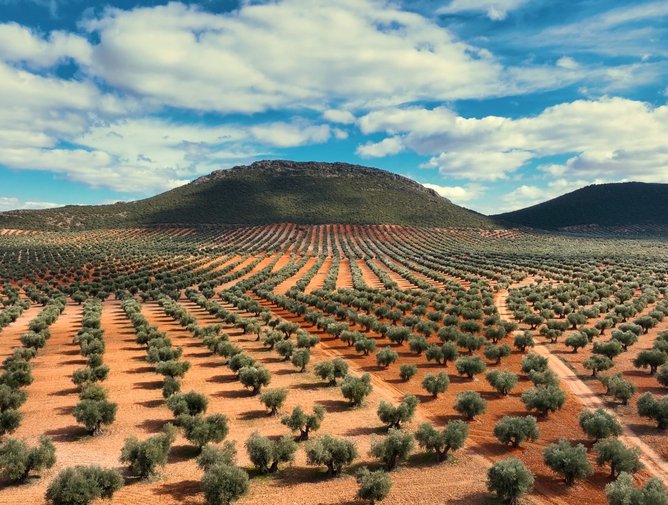Ford: Driving the Circular Economy With Recycled Waste

As a major source of greenhouse gas emissions, the car industry is driving toward a sustainable future.
Alongside the push to electric, the sector is shifting away from traditional materials in the construction of car parts, such as petroleum-based plastics – to raw materials that are sourced responsibly, including those that are recycled or made from waste.
Car companies are turning not just to scrap metal, but to landfill waste, and to agricultural by-products, recycling what would otherwise be wasted to develop new plastics.
From ocean plastics to discarded textiles, waste materials are being blended with bio-composites to be used in upholstery, and increasingly other car parts, from headlights to panelling.
In short, manufacturing is being reimagined, with a focus on reducing waste and improving reusability.
Currently, around 30% of vehicle materials are recycled for new vehicles.
Among leading car companies turning trash into treasure: Volvo Group is recycling discarded fishing nets into carpets for its premium EV sub-brand Polestar; BMW is making trim parts for its upcoming Neue Klasse model from recycled fishing nets and ropes; Audi is constructing seats made with yarn from plastic bottles; Nissan has started recycling textiles to make sound insulation for electric vehicle LEAF; and Renault Group is using seat material made from recycled safety belts, textile scraps and plastic bottles in its Zoe EV.
Then there’s Ford Motor Company – which is increasingly tapping agricultural by-products, including coffee bean husks, and now olive tree waste, as it looks to advance its circular economy goals.
With more than 172,000 employees, a market valuation of US$47.79 billion, and long billed as the number one commercial vehicle brand in the US and Europe, Ford must (and does) take sustainability seriously – always searching for innovative ways to take the sustainable path.
Aiming for net-zero no later than 2050 and carbon-free electricity in global manufacturing by 2035 – like many manufacturing majors, Ford is moving toward an all-electric future, investing more than US$50 billion from 2022 through 2026.
After reaching its annual targeted production run rate of 600,000 electric vehicles globally by the end of 2023, the company is “on track to reach 2 million by the end of 2026”, Ford CEO Jim Farley said in the company’s 2023 Integrated Sustainability and Financial Report.
Beyond the transition to clean energy, Ford is also striving to green its cars in other ways – by expanding the use of sustainable materials focused on plastics, battery recycling, and sustainable sourcing.
Leading the charge in sustainable materials, Ford was the first automaker to use 100% recycled post-consumer plastics to produce car parts.
And since 2000, Ford has used nine industry- and world-first plant-based materials in its production vehicles – researching the possible use of bamboo, soybeans, hemp fibre, coffee husks, captured carbon dioxide, and olive tree fibres as materials.

As early as 2008, Ford was experimenting with plant-based materials, and has now used soybean-based foam in more than 18.5 million vehicles built in the US.
Coffee chaff is another waste product being leveraged by Ford.
Joining forces with McDonald’s in 2019, Ford is now taking the husk of the coffee bean that comes off during roasting and is thrown away, heating and mixing this with plastic and other additives, and turning the material into headlamp housings for its cars.
More durable than the standard housings, and 20% lighter, they also deliver on fuel efficiency, saving up to 25% energy during the moulding process.
Armed with a target to achieve 20% recycled and renewable plastics in new vehicle designs by 2025 – Ford continues to explore plant-based material innovation.
In its latest circular push, the US car manufacturer has turned to olive tree waste – sourcing branches, twigs, and leaves discarded during the olive harvest in groves in Andalusia, Spain, a region with the highest production of olive oil in the world.
Every year, pruning olive trees creates 7 million tons of waste.
Following simulation testing to assess the usability of olive trees in durability, strength and mouldability, engineers at Ford’s European HQ in Germany produced prototypes of footrests and parts of the boot area that were deemed “robust and durable” – potentially paving the way for mass use in EVs.
In using waste from olive trees, the carmaker is not only able to “substitute a significant amount of petroleum-based raw material in the interior parts” but also support cleaner air in the areas the trees are grown by avoiding burning waste, according to Inga Wehmeyer, Project Lead at Ford.

Ford leads charge in circular economy – and beyond
Always on the lookout for “ways to become more sustainable”, says Wehmeyer, Ford is serious about recycling and waste efforts.
The largest closed-loop aluminium recycling automaker in the world, as per its 2022 Sustainability Report, the automaker uses the system to build its F-series, recovering up to 20 million pounds of high-strength, military-grade aluminium alloy per month.
Among other achievements, more than 85% of Ford’s vehicle parts are recycled and reused at their end of life.
The company has 84 zero waste to landfill sites globally, with plans to reach true zero-to-waste landfill across operations by 2030.
In a discussion at COP28 in Dubai last month, Cynthia Williams, Ford’s Global Director of Sustainability, Homologation, and Compliance, emphasised the need “to encourage product design that minimises waste and supports a circular economy” – as well as providing subsidies and incentives or green technologies and fostering a ‘just transition’ that ensures inclusion and equity for all.
Here is a snapshot of Ford Motor Company’s key sustainability goals and progress, as per its 2023 Sustainability Report:
- Energy – goal to use 100% carbon-free electricity in all manufacturing by 2035, with 60.6% used in 2022. All purchased electricity for manufacturing in Europe is now renewable and all manufacturing locations in Mexico now powered with 100% carbon-free electricity.
- Water – goal to reduce absolute freshwater use by 15% by 2025. More than 186.3 billion gallons of water has been saved since 2000.
- Electrification – goal to create a carbon-neutral transportation future and on track to reach an annual targeted production run rate of 600,000 electric vehicles globally by the end of 2023, and 2 million by the end of 2026.
- Waste – goal to reach zero-to-waste landfill across operations by 2030 and eliminate single-use plastics. Ford reduced waste to landfill by 35% in 2022, acros 84 sites.






